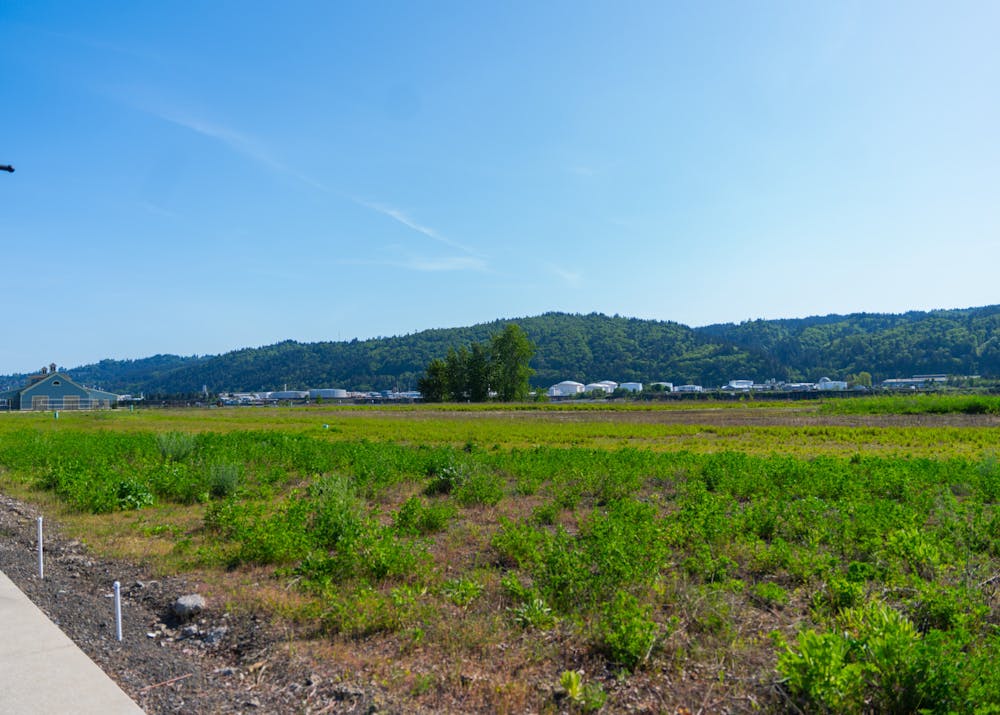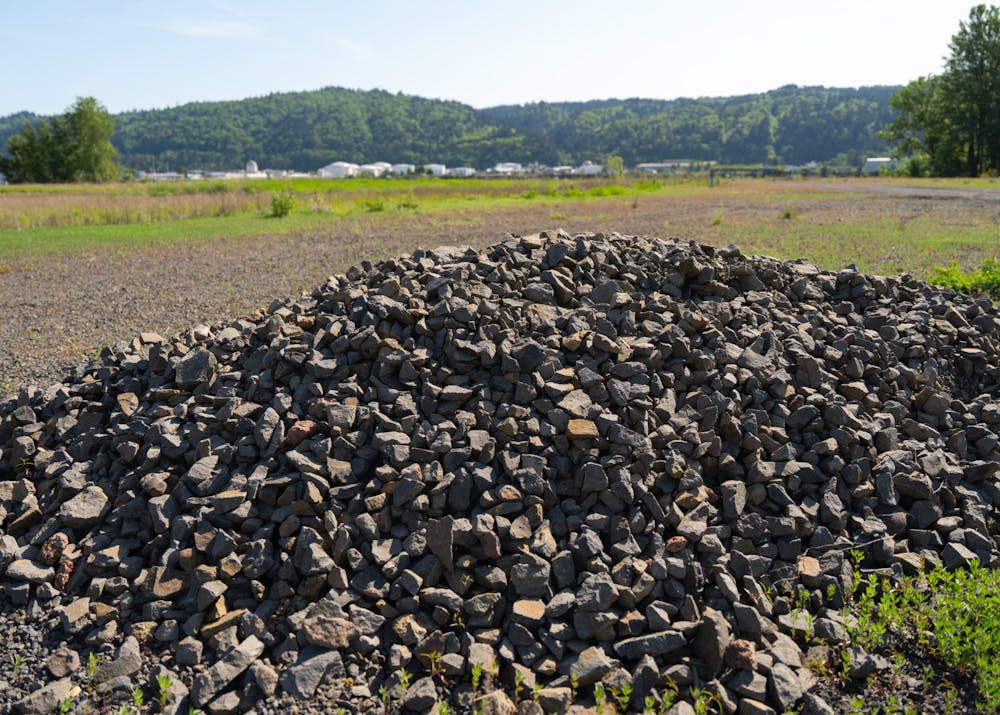On the north side of the Franz River Campus, in an area that was expected to house a competition-ready track complex complete with a Pilots-purple race track, is now a construction site covered in 12-18 inches of gravel in an effort to level the ground.
While the complex was initially slated for completion by the fall of 2019, uneven ground on the building site flagged as a concern by engineers that same year, halted all construction as the University implements an engineering practice known as surcharging to level the site before construction.
There is currently no firm timeline in place for the project’s completion, which continues to leave the Pilots track and field teams without a track.
According to Associate Vice President for Campus Planning & Construction Jennie Cambier, material buried under the site is constantly shifting, making it impossible for construction to begin until surcharging can settle the land.
Though no one knows exactly what material is causing the disruption, both Cambier and Vice President for Finance & Operations Eric Barger say that engineers speculate that an old tugboat could be buried due to the site’s position along the Willamette River.
“This site is a former industrial site, and there has been a lot of activity in the past that's basically buried underneath there,” Cambier said. “We've done a lot of work to clean it up, but there might be old wooden debris…Anything that's organic is essentially rotting. And so over time, the site is settling in different ways.”

The track-complex construction site on River Campus.
Cambier says that NCAA tracks have to be completely flat with no sloping in order to meet regulations. If construction were to continue with the site’s current state, it's likely that sloping would happen over time, leading to an unusable facility.
“We could build the track today, and within five years we might have some serious separation of materials and major repair work that we'd have to undertake,” Cambier said. “No one wants to throw good money after bad.”
According to Cambier, engineers are currently monitoring 17 points on the site four times a year to track the site’s progress. What complicates this progress further is that the site settles at different rates, and that settlement is also affected by river levels.
Postponing construction also costs the University. Barger estimates that between $500,000 and $1 million has been spent on the complex thus far, with around $300,000 of that figure coming from the surcharging operation.
Vice President for Athletics Scott Leykam expresses the University’s gratitude to the engineers involved with the monitoring during this period.
“The University continues to engage in site preparation work on the footprint of the track complex on the Franz Campus,” Leykam said. “As part of this site prep work, we’re grateful to the fantastic team of engineers and designers who have provided us with invaluable partnership on this project.”
Maggie Dapp is the Sports Editor at The Beacon. She can be reached at dapp26@up.edu.








